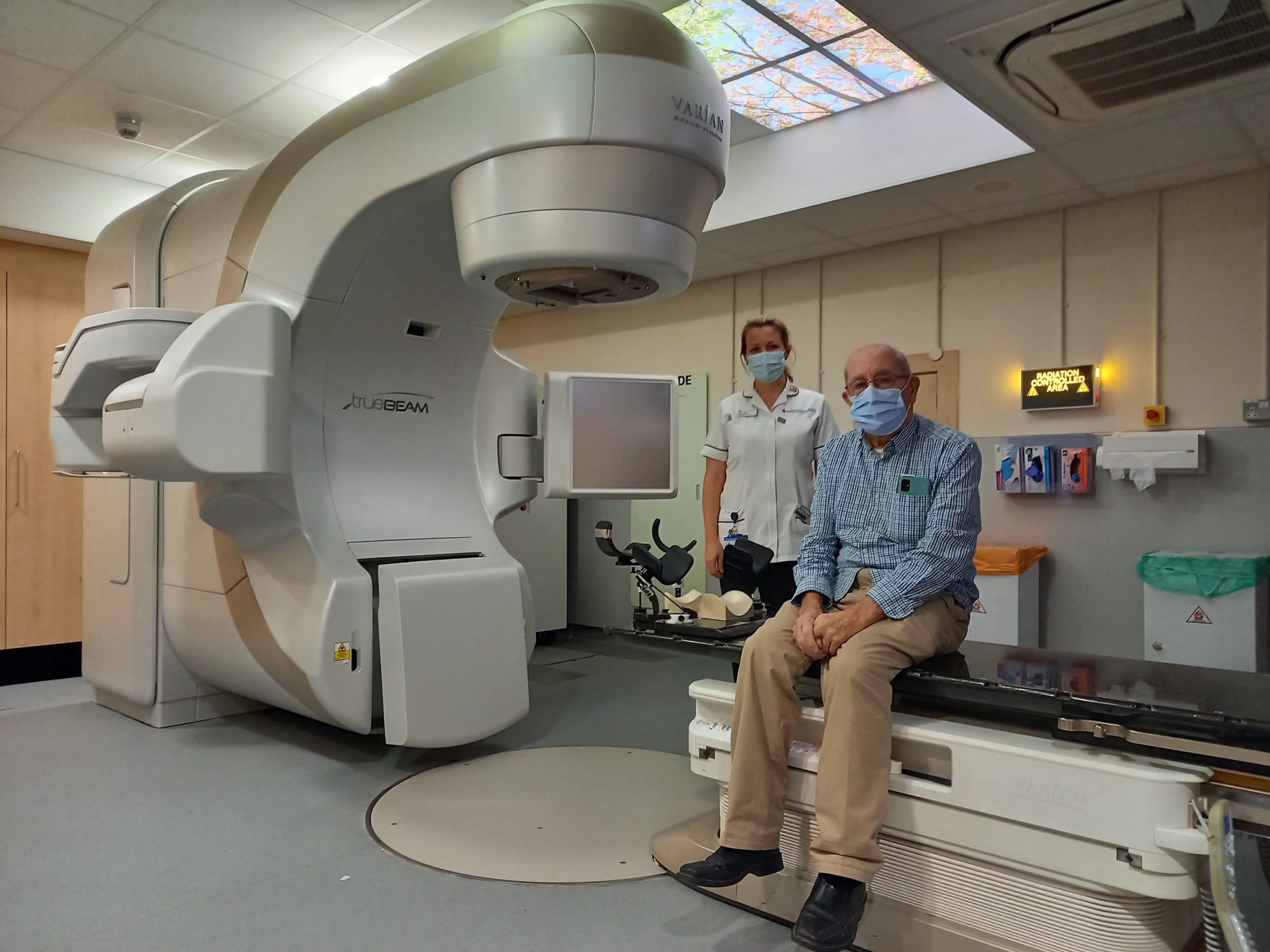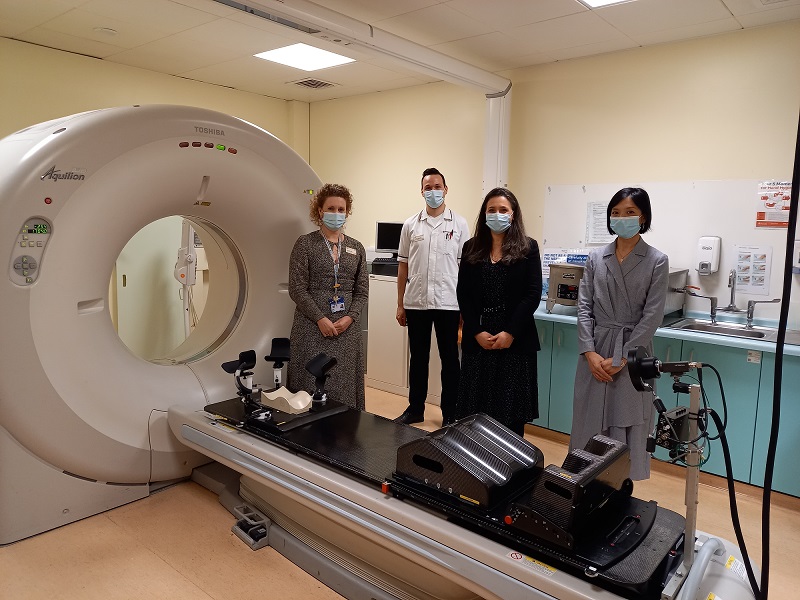
David Page is one of the first patients at the Royal Free Hospital to benefit from highly effective targeted radiotherapy now being used to eliminate cancer detected in bones and lymph nodes.
The 81-year-old from Barnet (pictured with Liz Cooper, treatment superintendent radiographer), was diagnosed with oesophageal cancer at the end of 2020 and was treated successfully with chemotherapy and radiotherapy. However a follow-up scan at the end of 2021 showed the cancer had returned – showing up as a ‘dot’ in a node in the abdomen. Luckily the limited development of the secondary malignant growth made David an ideal candidate for stereotactic ablative body radiotherapy (SABR), which has already proved a highly effective targeted treatment for early lung cancer. The NHS is now rolling out SABR treatment for cancers – known as oligometastases - that show limited spread to other areas of the body after the primary cancer has been treated to all radiotherapy departments in the country, following the release of new data from successful pilot studies.
SABR treatment delivers a curative dose of radiation to the tumour with far fewer sessions than conventional radiotherapy. This technique allows radiographers to target the cancer much more effectively and this, combined with the extremely precise planning technique, means patients are likely to experience fewer side effects than standard radiotherapy.
David said: “I haven’t really noticed any side effects from this treatment apart from some disruption to my sleep patterns and sometimes feeling a bit constipated but the treatment itself is very quick – only about 10 to 15 minutes.”
David admits he has a keen interest in the work of the team looking after him and the equipment being used.
He said: “I used to be a medical rep and helped set up the kidney unit at the Royal Free Hospital so I actually feel quite at home! That said I am looking forward to my final treatment and not having to come back for a while.”
Dr Swee Wong, consultant clinical oncologist, said: “It is fantastic that patients like David are now able to be treated at the Royal Free Hospital and the outcomes for this treatment are good. Later this year we are hoping to use SABR to tackle liver tumours, all of which could increase the numbers of patients who benefit each year.”
James Barber, radiotherapy pre-treatment superintendent radiographer, said: “We think that we will be able to offer this treatment for bone and lymph node metastases to 15-20 patients each year. This is another effective tool available for us to offer to patients and could prove a game-changer by successfully eliminating their cancer without too much disruption to their lives.”
(L-R: Clare Hartill, radiotherapy services manager, James Barber, radiotherapy pre-treatment superintendent, Dr Sarah Needleman, consultant clinical oncologist and radiotherapy lead and Dr Swee-Ling Wong, consultant clinical oncologist).

 Translate
Translate